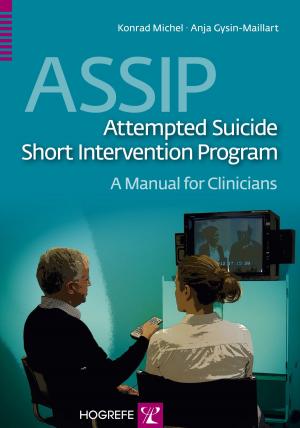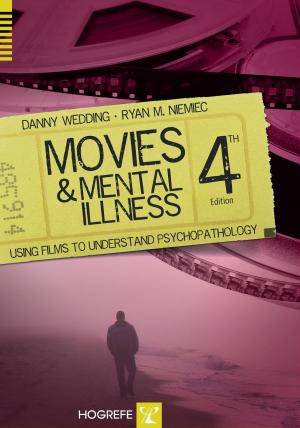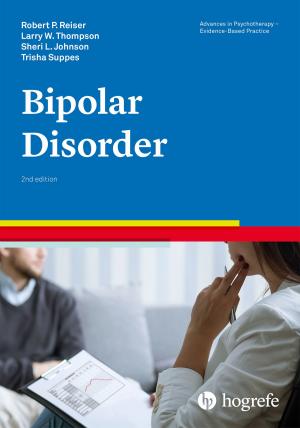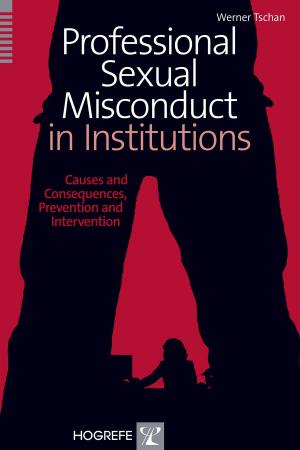| Author: | ISBN: | 9781616763756 | |
| Publisher: | Hogrefe Publishing | Publication: | January 1, 2010 |
| Imprint: | Hogrefe Publishing | Language: | English |
| Author: | |
| ISBN: | 9781616763756 |
| Publisher: | Hogrefe Publishing |
| Publication: | January 1, 2010 |
| Imprint: | Hogrefe Publishing |
| Language: | English |
This new edition of one of the most popular and highly regarded texts on behavioral and social science in medicine has been fully revised and updated. It is structured to reflect the latest Institute of Medicine recommendations on the teaching of behavioral and social sciences in medicine. Its 25 chapters are divided into five core domains: mind-body interactions in health and disease, patient behavior, the physician’s role and behavior, physician-patient interactions, social and cultural issues in health care along with health policy and economics. Under the careful guidance and editing of Danny Wedding, PhD, Professor of Psychology at Alliant International University in San Francisco, CA, and Margaret L. Stuber, MD, the Jane and Marc Nathanson Professor of Psychiatry and Biobehavioral Sciences at UCLA, over 40 leading educators from major medical faculties have contributed to produce the most comprehensible and well-designed text in its field. Unique to Behavior and Medicine is the use of hundreds of works of art, poetry, and aphorisms to provoke thought and interest and to illuminate the most important points. Additional features of note are: Practical, clinical emphasis, based around the core topics recommended by the Institute of Medicine / Comprehensive, trustworthy, and up-to-date / Competitive price compared to other much less comprehensive, question-andanswer- type, course review works / Chapters written and carefully edited by leading educators at major medical facilities / Numerous case examples, tables, charts, and boxes for quick access to information / Learning and exam aids, such as sample USMLE review questions / New chapters on medical ethics and the United States health care system. A unique textbook, comprehensive and up-to-date, with a practical, clinical emphasis and a structure that is ideally suited for teaching behavioral sciences in the medical school classroom.
This new edition of one of the most popular and highly regarded texts on behavioral and social science in medicine has been fully revised and updated. It is structured to reflect the latest Institute of Medicine recommendations on the teaching of behavioral and social sciences in medicine. Its 25 chapters are divided into five core domains: mind-body interactions in health and disease, patient behavior, the physician’s role and behavior, physician-patient interactions, social and cultural issues in health care along with health policy and economics. Under the careful guidance and editing of Danny Wedding, PhD, Professor of Psychology at Alliant International University in San Francisco, CA, and Margaret L. Stuber, MD, the Jane and Marc Nathanson Professor of Psychiatry and Biobehavioral Sciences at UCLA, over 40 leading educators from major medical faculties have contributed to produce the most comprehensible and well-designed text in its field. Unique to Behavior and Medicine is the use of hundreds of works of art, poetry, and aphorisms to provoke thought and interest and to illuminate the most important points. Additional features of note are: Practical, clinical emphasis, based around the core topics recommended by the Institute of Medicine / Comprehensive, trustworthy, and up-to-date / Competitive price compared to other much less comprehensive, question-andanswer- type, course review works / Chapters written and carefully edited by leading educators at major medical facilities / Numerous case examples, tables, charts, and boxes for quick access to information / Learning and exam aids, such as sample USMLE review questions / New chapters on medical ethics and the United States health care system. A unique textbook, comprehensive and up-to-date, with a practical, clinical emphasis and a structure that is ideally suited for teaching behavioral sciences in the medical school classroom.















